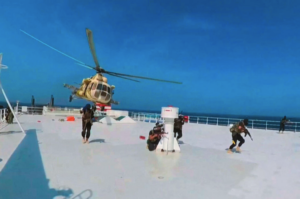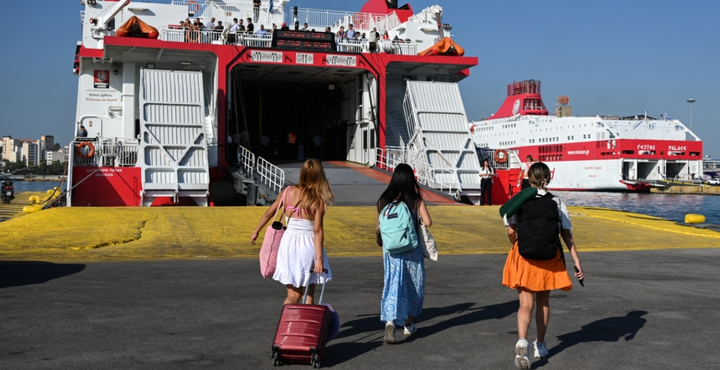The undeclared war in the Bab el-Mandeb straits is turning into a long confrontation of attrition, as the surgical strikes by the US-British force against the Houthis have failed to hit the capabilities of the Islamic organisation, which is gradually managing to impose a peculiar blockade on one of the world’s most critical maritime trade routes.
Indeed, the new threat is that there will be sabotage of the submarine cables used for the transfer of data and for economic and financial communications between Europe and Asia, which would have devastating economic consequences and cause real chaos.

The European operation ‘Shields’, based in Larissa, will be complementary to the US-UK ‘Prosperity Guardian’ initiative and will be defensive in nature, with the development of a protective shield for merchant ships.
The texts relating to operational planning and rules of engagement have already been approved by the EU Military Committee and the EU’s Political Security Committee and on Wednesday by Coreper, and the Foreign Ministers have yet to formally decide on the launch of the operation, which is commanded by Commander-in-Chief Vassilis Gryparis.
Greece, as has already been announced, will participate with the frigate Hydra, which is preparing feverishly for this difficult mission, which is expected to last at least three months in the first phase.
The Greek frigate has been fitted with all weapons systems and additional electronic warfare and drone countermeasures systems, which are operational and tests are being carried out so that everything will be ready as soon as the order to sail is given.
The Ministry of National Defence, recognising the seriousness of the mission, has even decided to motivate the participation of the Navy personnel who will participate in the “Shields” mission, as it was announced that a one-off aid of 1,500 euros and a daily tax-free allowance of 120 euros will be given, while for those in a position of responsibility this amount will reach up to 140 euros per day.
For Greece, the decision to participate in the force – and even to claim a leading role – was a one-way street, not only because free navigation in the Red Sea is of direct concern to our country, due to the shipping industry, but also because it is an opportunity for Greece to highlight its stabilising role in the Eastern Mediterranean region, which is also the exit of the valuable for global trade sea corridor that ends at the Suez Canal.
The rest of Europe
With France already present in the region, Germany and Italy have announced the ships that will participate in Operation Shields already heading for the Red Sea.
Italy, which will take command of the operation at sea, announced that it will participate with the impressive destroyer “Caio Duilio” (D554), which has already sailed from Italy towards the Red Sea.
The undeclared war in the Bab el-Mandeb straits is turning into a long confrontation of attrition, as the surgical strikes by the US-British force against the Houthis have failed to hit the capabilities of the Islamic organisation, which is gradually managing to impose a peculiar blockade on one of the world’s most critical maritime trade routes.
Indeed, the new threat is that there will be sabotage of the submarine cables used for the transfer of data and for economic and financial communications between Europe and Asia, which would have devastating economic consequences and cause real chaos.
The European operation ‘Shields’, based in Larissa, will be complementary to the US-UK ‘Prosperity Guardian’ initiative and will be defensive in nature, with the development of a protective shield for merchant ships.
The texts relating to operational planning and rules of engagement have already been approved by the EU Military Committee and the EU’s Political Security Committee and on Wednesday by Coreper, and the Foreign Ministers have yet to formally decide on the launch of the operation, which is commanded by Commander-in-Chief Vassilis Gryparis.




































